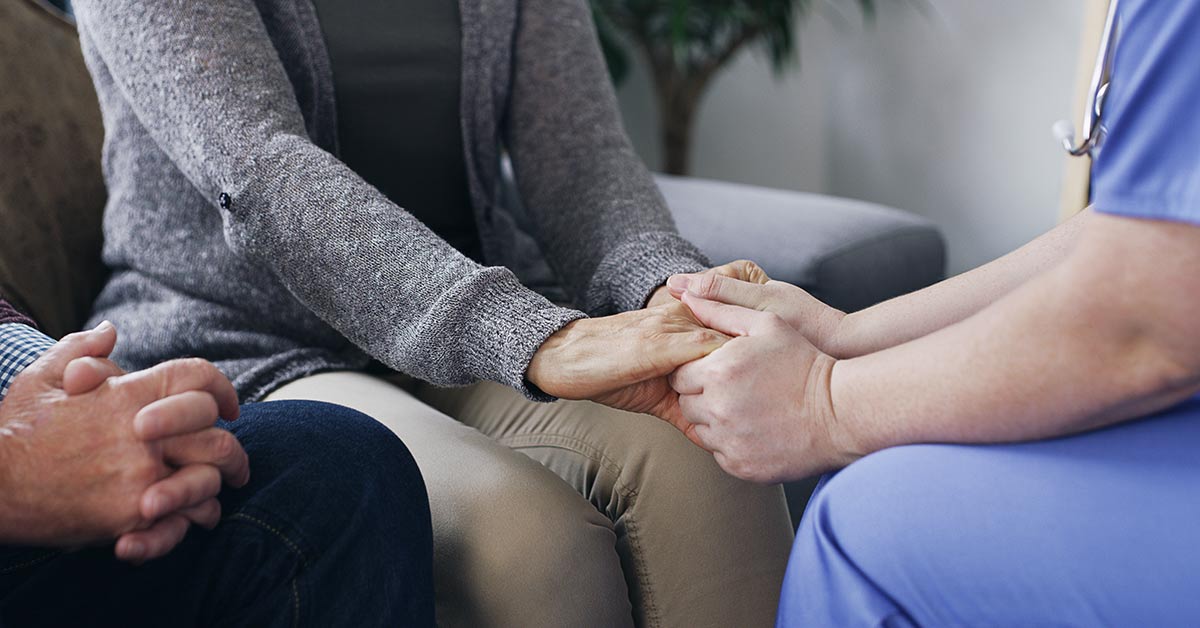Weather Alert: Following the winter storm, all Temple Health hospitals, campuses and clinical locations remain open. Patients will be contacted directly if their visit is affected. Please check TempleHealth.org or FoxChase.org for updates and monitor myTempleHealth for changes to scheduled appointments.
Breadcrumb
- Home
- Thrive Cancer Blog
- Tips for Coping with the Uncertainty of Cancer

Tips for Coping with the Uncertainty of Cancer
-
When it comes to cancer, the only real guarantees are there aren’t any. Cancer journeys are full of uncertainties, and it’s easy for all of those “what-ifs” to take a toll on your mental health. But it doesn’t have to be that way.
No doubt—the big questions that accompany a cancer diagnosis can be hard to swallow. You might find yourself having worries like:
- Am I making the right treatment decision?
- Will my treatment work?
- How can I make plans for the future?
- Will my cancer or treatment cause pain or affect my quality of life?
- What will show up on my next scan?
- Even if the treatment works, will my cancer come back?
- Am I going to die?
Mulling over questions like these can make you anxious, sad, afraid, or angry. And all of those feelings can make it harder to enjoy the good things that are happening right here, right now, said Paula H. Finestone, PhD, a clinical psychologist at Fox Chase Cancer Center.
So, what can you do? There’s no right or wrong way to respond when cancer worries come up, of course. But here are some ideas that may be helpful.
Research your cancer and treatment. Having a solid understanding of your diagnosis can give you an idea of what to expect. Reach out to your healthcare team and ask them for a list of resources and trusted places to find information.
Focus on what you can control. Worrying about uncertainties can take up a lot of mental energy. But it won’t change the outcome, Finestone said. Try spending more time thinking about what you can do to feel your best. You might not know how much energy you’ll have after a chemo session, for instance, but you can plan to leave the rest of the week open to give yourself time to rest if you need it.
Busy your brain with other things. Stay occupied with activities that will keep your mind from wandering into those dark corners. After all, it’s harder to dwell on cancer questions when you’re in the middle of doing something else.
“Engage in a hobby, watch movies, or clean out your messy closet,” Finestone suggested. “All of those things can be more positive than worrying about what might happen.”
Practice mindfulness. Mindfulness simply means bringing your attention to the present moment.
“It can be anything that engages one’s attention while putting aside thoughts about the future or past,” Finestone said.
When a worry comes up, try pausing and bringing your focus back to right now. Pay attention to your breathing, for instance. Or you can practice mindfulness while doing something as simple as washing dishes, really focusing on the task at hand, Finestone said.
Connect with others. Join a cancer support group, open up to a trusted family member or friend, or meet with a counselor. Talking about your fears can make them feel more manageable.
Accept that you won’t have all the answers. “Any doctor can throw a lot of statistics at a person, but the reality is, we don’t know for sure what will or won’t happen to someone,” Finestone said. “But you do know how you are in this moment; if it’s a good moment, enjoy it.”
